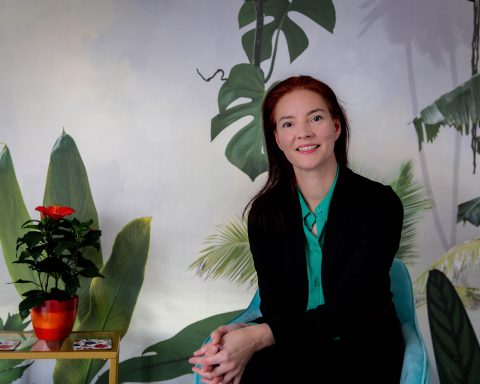I grew up with everyone I knew telling me I was a good singer and many prompting me to perform (for instance in family gatherings) when I didn’t feel like it. I had a “passion” for pop music, but when I ran into the opportunity to become a pop singer as a teenager, I backed out of the record deal. To some, this choice was incomprehensible – how could I turn down my one chance to maybe be famous – but to me, it has made a lot of sense, especially as I’ve matured.
Despite second-guessing pretty much every major decision I’ve ever made, even back then I knew instinctively that I didn’t really want to be any one thing, except my own master.
So I’ve picked up and left places and people dear to me many times in my 37 years. I’ve changed careers more than once. I’ve visited more than 50 countries in search of a feeling that external validation has never been able to give me.
If money grew on trees and I had a green thumb, I think I wouldn’t spend another second doing paid work.
I actually couldn’t care less about owning a house or the latest shiny things. Heck, I probably wouldn’t even wear clothes if social conventions and the weather didn’t require them.

But as we all know, the world we live in doesn’t work like that. We’re supposed to not only “make something of ourselves,” but also to find a “socially meaningful” occupation while at it. Success is measured by possessions, prizes, and solutions, by the ends more than the means. We’re pressured into “leaving our mark” while building up a personal brand that fits into two-page CVs and is distillable into elevator pitches.
Society doesn’t seem to care about your “passion” unless it can turn you into a productive little machine.
I am not immune to this game or impervious to its oppressive demands and have learned to play it, to a certain extent, to be able to function in a capitalist society. In striving – or rather struggling – to “make it” in academia, I’ve had to swallow countless rejections and nurse my sore ego as potential employers repeatedly fail to appreciate my interdisciplinary methods and winding (read: erratic) career path.
I don’t think there’s anything inherently wrong with trying to figure out the things you enjoy doing and even the ones you’re “good” at. In my opinion, a “passion” only becomes a problem when a) it’s expected to be commodified, b) it comes to define you, and c) it keeps you from discovering and doing other things you might like. All that seems to happen often in our society, and we end up seeing people who are renowned for doing one thing particularly well as one-dimensional beings.

Because I spent too much time writing love poems for boys, I failed to get into physics, math, and philosophy when I was still allowed by society to begin pursuing those fields.
It was only in my mid-30s that I found out I would’ve liked to.
I instead became an indecisive writer and researcher who probably knows a little about a lot but not a lot about anything. This, in turn, led me to become an avid student of YouTube videos that claim to explain the universe and the follies of humankind.
There are probably as many YouTubers nowadays who deconstruct sociocultural norms and the commodification of “passion” as those who urge you to contour and wake up at the crack of dawn to beat others to the hamster wheel.
My concern is that those currently in the perspicacious group might happily give up their insights as soon as they hit several million followers on YouTube and draw the attention and bucks of big corporations. How many of our “heroes” have we “lost” to the traps of notoriety?
This is our fault, too, for inventing heroes in the first place. We like to (or maybe need to) worship and would probably rather have several gods to choose from; even those who identify as monotheistic. We put entertainers, philanthropists, and wisemen on a pedestal and both hate them and revel in it when they inevitably fall out of grace for being all too human.
So what’s the solution for the quandary of “finding your passion” and having it appreciated by others without being consumed, controlled, corrupted, or crushed by the phenomenon?
If I knew the answer, I probably wouldn’t be writing articles that are pretty much guaranteed to be read by only a handful of people. I would be a motivational-speaker-turned-weird-cult-leader, whose name would be tattooed across people’s chests and whose addictions and miseries would be carefully concealed by tons of make-up and make-believe.







![Wine & Paint event on 9 Nov. 2024 at Felix Restaurant, Leipzig. Photo: Florian Reime (@reime.visuals] / Wine & Paint Leipzig](https://leipglo.com/wp-content/uploads/2024/12/pixelcut-export-e1733056018933-480x384.jpeg)


